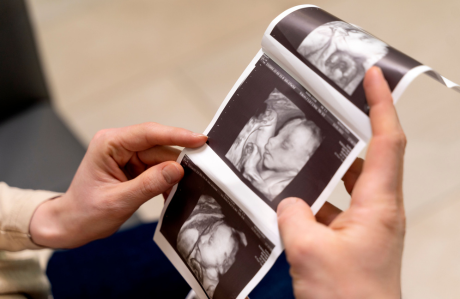
Pregnancy is a time filled with excitement, anticipation, and a lot of care. Among the many milestones during these nine months, one important step is the Anomaly Scan. It’s also often called the 20-week ultrasound, and it plays a crucial role in checking your baby’s development and health. If you are wondering “when is anomaly scan done” or why it’s considered so important, this guide will answer all your questions clearly and simply.
What Is an Anomaly Scan?

An anomaly scan is performed as an ultrasound in second trimester of pregnancy. It helps doctors examine the baby’s organs, limbs, brain, heart, and spine in order to check if they are developing normally. This scan also checks the position of the placenta, the amount of amniotic fluid, and the overall growth of the baby.
For most parents, it’s also the first time they can get a clear view of their baby’s features.
When Is Anomaly Scan Done?
The most common question parents ask is “when is anomaly scan done?” Usually, the anomaly scan is done between 18 to 22 weeks of pregnancy. This is the ideal timing for anomaly scan because the baby’s organs have formed enough to be clearly visible.
Most doctors recommend scheduling it around the 20-week ultrasound, as this provides the best window for accurate results.
Why Is Anomaly Scan So Important?
This 20-week ultrasound is considered a major milestone in your pregnancy scans schedule. Here’s why:
- It allows doctors to detect structural abnormalities early.
- It ensures the baby’s growth matches the expected timeline.
- It checks for conditions like cleft lip, heart defects, or spinal issues.
- It confirms the location of the placenta to rule out placenta previa.
By doing this scan at the right time, you and your doctor can be well-prepared for the rest of your pregnancy journey.
Why the Timing Matters
You may wonder “Can the anomaly scan be done earlier or later?”
If done too early (before 18 weeks), your baby’s organs may not be fully visible. This can lead to incomplete results.
If done too late (after 22 weeks), it might limit certain medical options if any issues are detected.
That’s why, when you ask “when anomaly scan is done,” the most accurate answer is between 18 and 22 weeks. This period offers the perfect balance between fetal development and diagnostic clarity.
How the Anomaly Scan Is Done

The process is simple and safe. A trained sonographer applies gel on the abdomen and uses an ultrasound probe to capture detailed images of the baby.
It usually takes 30 to 45 minutes. You might be asked to slightly fill your bladder for better visibility, though it’s not always necessary in the second trimester.
This ultrasound in second trimester is painless and non-invasive, ensuring comfort for both mother and baby.
What Does the Doctor Check in the Scan?
During the anomaly scan, the doctor examines:
- The baby’s head, brain, and face
- The heart and major blood vessels
- The spine and limbs
- The kidneys, stomach, and bladder
- Placenta position and umbilical cord
Each of these observations helps confirm that the baby is growing well and that the pregnancy is progressing smoothly.
What If the Scan Shows an Abnormality?
In most cases, the anomaly scan reassures parents that their baby is healthy. However, if the scan detects something unusual, don’t panic.
The doctor might recommend further tests like a fetal echocardiogram, follow-up ultrasound, or genetic testing. Early detection means early intervention; and many findings turn out to be minor or temporary.
The main purpose of knowing when the anomaly scan is done is to make sure such issues, if any, are identified at the right time.
Anomaly Scan and the Pregnancy Scans Schedule
Your pregnancy scans schedule usually includes:
- Early Pregnancy Scan – around 6-8 weeks to confirm the heartbeat and gestational age.
- Nuchal Translucency Scan – between 11-13 weeks to screen for chromosomal conditions.
- Anomaly Scan – around 20 weeks to assess baby’s anatomy.
- Growth Scans – in the third trimester to monitor the baby’s growth and position.
Knowing when anomaly scan is done helps you plan this schedule more confidently.
How to Prepare for the Anomaly Scan
Preparation is simple:
- Wear comfortable clothes that allow easy access to your abdomen.
- You may need a moderately full bladder.
- Bring your previous reports, if any.
- Relax and enjoy the experience, this is a beautiful chance to see your baby’s movements.
Safety of the Anomaly Scan

This ultrasound in second trimester is completely safe for both mother and baby.
It uses sound waves, not radiation. This is why every doctor emphasizes when the anomaly scan is done; not just for medical reasons but also to give you peace of mind about your baby’s well-being.
FAQs
When is Anomaly Scan done during pregnancy?
Ans. It is usually done between 18 to 22 weeks, with 20 weeks being the ideal time. This is why this scan is also called 20-week ultrasound.
Why is the 20-week ultrasound crucial in pregnancy?
Ans. Because it helps detect structural abnormalities and confirm healthy fetal growth.
What is the ideal timing for an Anomaly Scan?
Ans. Anomaly scan is performed as an ultrasound in second trimester, between 18 and 22 weeks, of pregnancy.
Is the anomaly scan done earlier than 20 weeks?
Ans. It can be done slightly earlier, but before 18 weeks the details may not be clear.
Can the anomaly scan be done after 20 weeks of pregnancy?
Ans. Yes, but it’s best not to delay beyond 22 weeks for optimal clarity and diagnosis.
What is the difference between an Anomaly Scan and an Early Pregnancy Ultrasound?
Ans. The early scan confirms pregnancy. Anomaly Scan on the other hand checks the baby’s anatomy and organ development.
Is it necessary to have an anomaly scan at 20 weeks?
Ans. Yes, it’s an essential part of prenatal care to ensure your baby’s health and growth.
Is the anomaly scan mandatory during pregnancy?
Ans. It’s strongly recommended by doctors worldwide, as it helps ensure a safe and informed pregnancy.
Final Thoughts
Knowing when the anomaly scan is done helps every expecting parent take one more step with confidence. Because it’s more than just a test! Anomaly scan is a moment of connection, reassurance, and preparation for the journey ahead.
So when your 20th week approaches, mark your calendar for this special milestone; the time to see your baby in the most detailed way yet.

